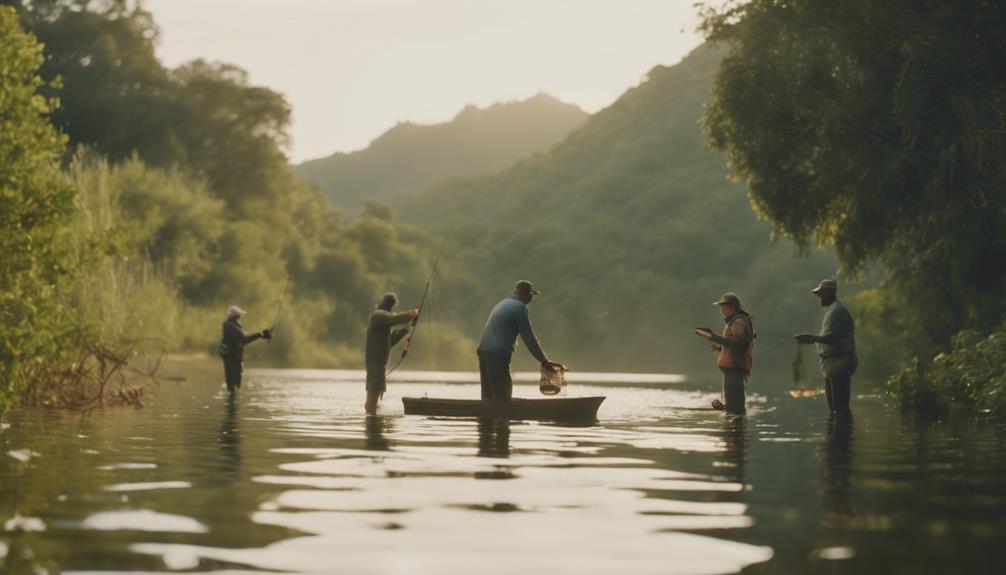Fishing is a beloved pastime for many seniors, offering relaxation, companionship, and an opportunity to connect with nature. However, the question often arises: do seniors need a fishing license? In this guide, we’ll explore the regulations surrounding fishing licenses for seniors, the benefits of fishing, and the best practices to ensure a rewarding fishing experience.
Understanding Fishing License Requirements for Seniors
Fishing license requirements vary significantly from state to state, and it’s crucial to understand local regulations. Generally, most states require individuals, including seniors, to obtain a fishing license before casting a line. However, many states offer exemptions or reduced-cost licenses for seniors, recognizing their contribution to society and their love for fishing.
To determine whether seniors need a fishing license in your area, visit your state’s wildlife agency website. Here, you can find specific details about age requirements, fees, and any exemptions available for senior citizens. Always double-check the latest regulations to ensure compliance and avoid any penalties.
State-Specific Licensing Rules for Seniors
Fishing regulations differ not only by state but also by local jurisdictions within states. For instance, in some states, seniors over a certain age may be eligible for free or discounted fishing licenses. For example, Florida offers discounted licenses to residents aged 65 and older, while states like Texas provide free licenses for seniors who meet specific criteria.
Understanding these state-specific rules is essential for seniors who wish to fish legally. Additionally, some states may have designated fishing days where seniors can fish without a license, promoting community engagement and outdoor activities. Be sure to check for these opportunities as they can be a great way to enjoy fishing without the cost of a license.
Benefits of Fishing for Seniors
Fishing offers numerous benefits for seniors, both physical and mental. Engaging in outdoor activities like fishing can significantly improve physical health by promoting cardiovascular fitness and enhancing motor skills. The act of casting, reeling, and navigating the water provides low-impact exercise that is suitable for many seniors.
Mentally, fishing is known to reduce stress and anxiety, providing a peaceful environment to unwind. The rhythmic sound of water and the tranquility of nature can be therapeutic, allowing seniors to enjoy their time outside. Furthermore, fishing can be a social activity, offering opportunities to bond with family and friends, fostering social connections that are essential for mental well-being.
Affordable Fishing License Options for Seniors
For seniors who are concerned about the financial aspect of obtaining a fishing license, many states offer affordable options. Reduced-cost licenses or free permits are often available, depending on age and residency. Some states may also have special programs that allow seniors to fish without a license on certain days or at specific locations.
Additionally, many local fishing clubs or community organizations may offer free fishing days, workshops, or events that can help seniors enjoy the sport without the financial burden of a license. It’s advisable to check local announcements or community boards for such opportunities.
How to Obtain a Fishing License
Obtaining a fishing license is a straightforward process, typically involving a few key steps. Most states allow seniors to apply for a fishing license online, making it convenient and accessible. To apply, seniors will typically need to provide proof of age and residency, which can include a driver’s license or other identification.
In some cases, seniors may also need to complete a brief fishing education course, especially if they are fishing in a new state or area. This course can often be taken online and is designed to ensure that all anglers understand local fishing regulations and best practices for conservation.
Fishing Regulations Seniors Should Know
While obtaining a fishing license is essential, it’s equally important for seniors to be aware of fishing regulations that may affect their experience. These regulations can include rules about catch limits, size restrictions, and specific fishing seasons. Many states implement these regulations to protect fish populations and ensure sustainable fishing practices.
Seniors should familiarize themselves with these regulations, which can often be found on state wildlife agency websites or through local fishing organizations. Understanding these rules not only helps in avoiding fines but also promotes responsible fishing practices that contribute to the preservation of aquatic ecosystems.
The Importance of Conservation in Fishing
Conservation is a crucial aspect of fishing, especially for seniors who enjoy this activity. Responsible fishing practices not only ensure that fish populations remain healthy but also protect the overall ecosystem. Seniors should be mindful of catch-and-release practices, ensuring that they return fish to the water unharmed when possible.
Moreover, participating in local conservation efforts, such as clean-up days or habitat restoration projects, can enhance the fishing experience. Many organizations offer opportunities for seniors to get involved and give back to the environment while enjoying their favorite pastime.
Conclusion: Enjoying Fishing Responsibly as a Senior
In summary, while the question do seniors need a fishing license? often has a straightforward answer—yes—there are many nuances that vary by state and local regulations. By understanding the specific requirements in their area, seniors can ensure they enjoy fishing legally and responsibly.
Fishing offers numerous benefits for seniors, from physical health to mental well-being, and with affordable licensing options and a focus on conservation, it can be a fulfilling activity. So grab your fishing gear, check your local regulations, and enjoy the peaceful waters that await you. Happy fishing!
